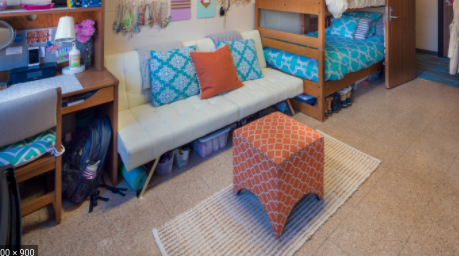College Need to Know

Photo by nytimes.com
High school to college is a scary transition for many students, but it doesn’t have to be. This piece will cover important information and tips from fellow college students that helped them be successful. When preparing for college, it’s important to determine what is best for you; some may need or benefit from taking a gap year or semester in order to analyze their identity and allow an opportunity for deep thinking and reflection that may not occur at busy times. When packing for college, it’s tempting to include everything that you may need, but college is temporary, so pack light! A good rule is to pack enough clothes to last two weeks between washing. When washing clothes, make sure not to leave your laundry in the washer alone, as people will take them out and put them elsewhere, and that’s never good. Make sure to pack shower shoes, as you do not want to go without them. Upon moving onto campus, meet your roommate and get to know them. Remember you will be spending a lot of time together, and to ensure when issues arise, they should be talked about before they escalate into even bigger things. Meeting new people is key to positive college experiences. They can help you have fun, try new things, and even manage stress. It is important to explore campus and learn what resources are available to students. Many colleges include access to libraries, a gym, tutors, and many other things within their tuition. Take advantage of these resources, even tutors; they´re meant for you to use. In terms of resources, utilize your advisor; they can lead you towards things that may help you, and they’re your friend! Advisors can help you find a part-time job that still allows you to complete your studies. They can also get you into a work-study, or even put you in contact with a college center or career fair. It’s also crucial to get a bank account in town, so you ’don’t have to worry about your parents transferring money to you. Balancing your finances is key, this can include decreasing the food budget, decreasing nonessential spending, and favoring scholarships and work studies over loans. In college, you are now an adult so create a resume (or update your current one), learn to do taxes, and update your FAFSA (you must submit one every year).
Take control of your life, go to class, find a note-taking system, prioritize learning over recording information, and get to know your professors.
Make good choices: get 7 hours of sleep minimum, set a schedule, stay healthy (washing hands, hydrating, eating healthy, exercising), stay away from caffeine, be okay with staying in while others are partying.
Be productive: register for classes right away (you don’t want to have an extra year of school because you’re missing a core class), minimize screen time, study how is best for you (outside of your room, active studying with flashcards), and back up your files.
Take time for yourself to explore your interests, take time choosing a major, and find ways to maintain your emotional/mental health (prioritize this). Overall in college put yourself first, explore, learn, but most of all have fun. If you keep in mind these needs to know, the college will fly by with ease.










